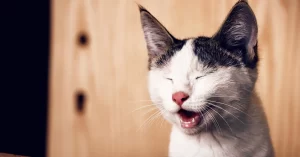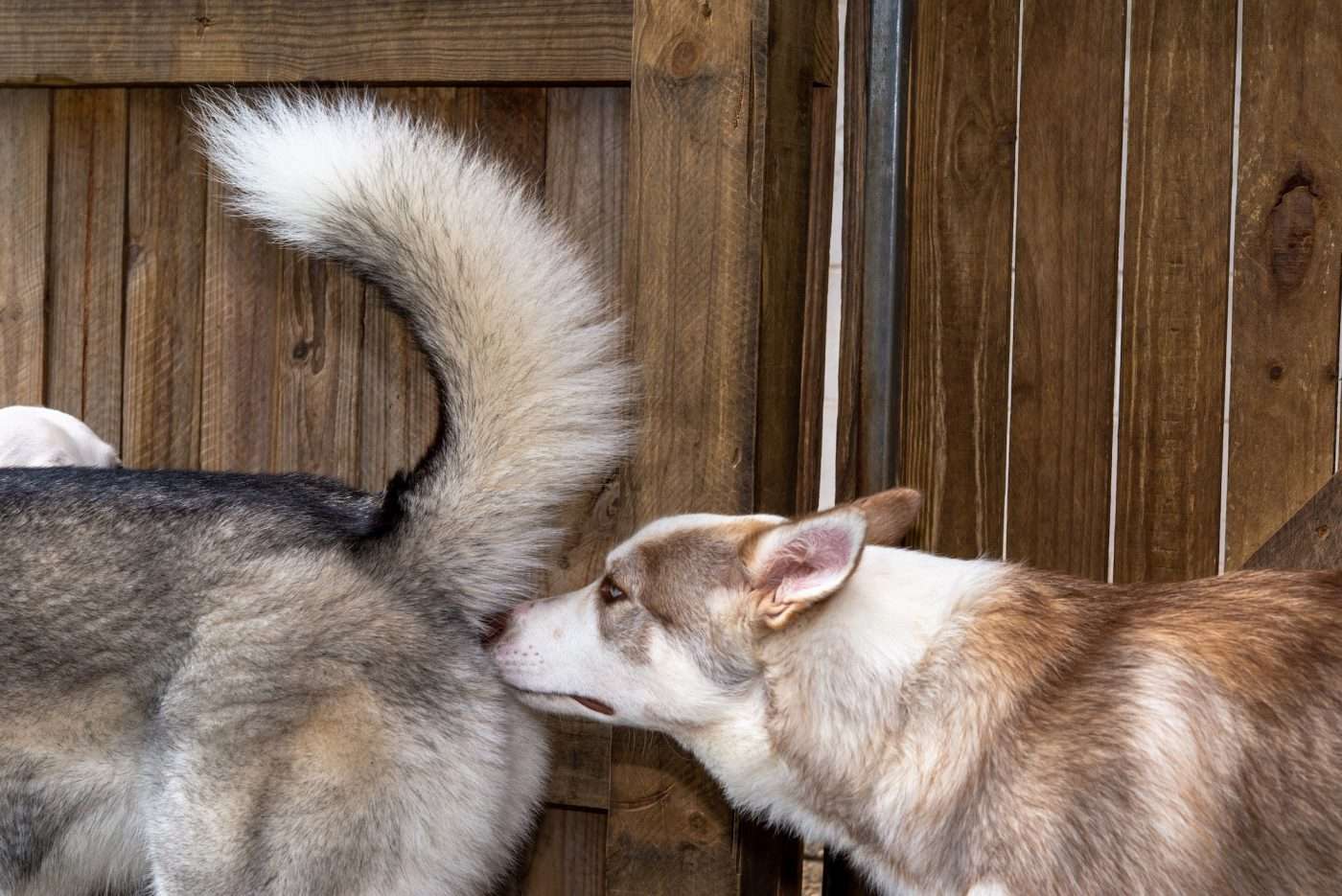Have you ever wondered why your feline friend is so obsessed with sniffing everything in sight? It turns out that there's a whole scented world out there that cats are drawn to like magnets. Understanding why cats love to sniff is not only fascinating, but it can also help us better understand and connect with our furry companions. So, let's dive into the intriguing world of cat sniffing and uncover the secrets behind their curious noses. Get ready to be amazed by the hidden wonders that lie within your cat's sense of smell!
Key Takeaways:
- Cats have a highly developed sense of smell, which is crucial for their survival and communication.
- Sniffing allows cats to gather information about their environment, including potential threats and prey.
- Certain scents can trigger positive or negative emotions in cats, influencing their behavior and mood.
- Introducing new scents can enrich a cat's environment and provide mental stimulation.
- Understanding a cat's scent preferences can help improve bonding and create a more comfortable living space for them.
The Scented World: Why Cats Love to Sniff
Why do cats have such a strong sense of smell?
Cats have an incredible sense of smell that is much more powerful than ours. They have around 200 million scent receptors in their noses, while humans only have about 5 million. This means that cats can pick up on scents that we can't even detect. Their sense of smell is so acute that they can identify specific smells and track them down.
When a cat sniffs something, it is not just smelling it, but also gathering information about the object or animal. They can determine if a scent is familiar or unfamiliar, if it belongs to a friend or foe, or if there are any potential dangers nearby. Sniffing allows cats to gather important information about their environment and make decisions based on what they detect.
How does a cat's sense of smell work?
- Cats use their nostrils to breathe in scents.
- The air containing the scent molecules travels through the nasal passages and reaches the olfactory epithelium, which is where the scent receptors are located.
- The scent receptors send signals to the brain, which interprets the information and helps the cat understand what it is smelling.
How Cats Use Their Sense of Smell Differently from Humans
How does a cat's sense of smell compare to humans?
Cats rely heavily on their sense of smell for survival and communication. While humans primarily use their eyesight as their dominant sense, cats prioritize their nose over their eyes. For example, when humans meet someone new, they often look at their face first to recognize them. In contrast, cats will sniff the air to gather information about the person's scent before making any judgments.
Cats also have a much wider range of smells that they can detect compared to humans. They can pick up on pheromones, which are chemical signals that animals release to communicate with each other. These pheromones can convey messages about territory marking, mating readiness, or even fear and stress. Cats use their sense of smell to understand these messages and respond accordingly.
What are some scents that cats can detect that humans cannot?
- Pheromones: Cats can detect pheromones from other cats, which helps them communicate and establish social hierarchies.
- Prey scents: Cats have a keen sense of smell when it comes to detecting the scent of potential prey, such as mice or birds.
- Specific odors: Cats can pick up on specific odors that humans may not notice, such as certain chemicals or substances.
Why Cats Are Fascinated by Different Scents
Why do cats show interest in various scents?
Cats are naturally curious creatures, and their sense of smell plays a crucial role in satisfying their curiosity. When they encounter a new scent, it triggers their instinctive behavior to investigate and explore. Sniffing allows them to gather information about the scent and determine if it is something interesting or potentially dangerous.
In addition to curiosity, cats also have a strong association between scents and memories. Certain smells can evoke positive or negative emotions based on past experiences. For example, the scent of catnip often elicits a playful response in cats because it is associated with enjoyable experiences for them.
What are some common scents that cats find intriguing?
- Catnip: Catnip is a plant that contains a chemical called nepetalactone, which many cats find irresistible. It can create a euphoric and playful reaction in cats when they encounter its scent.
- Familiar scents: Cats are often attracted to the scents of their owners or other familiar individuals. These scents provide comfort and security for them.
- Food smells: Cats have a strong sense of smell when it comes to food. They can be easily enticed by the aroma of their favorite treats or meals.
Scents That Attract Cats: Examples and Explanations
What scents are known to attract cats?
There are several scents that are known to attract cats due to their natural preferences and instincts. One example is valerian root, which has a pungent odor that many cats find appealing. Some cats may roll around in valerian root or become more active when exposed to its scent.
Another scent that attracts cats is silver vine, which is similar to catnip but has a different chemical composition. Silver vine also triggers a playful response in many cats, making it an excellent alternative for those who do not respond strongly to catnip.
What other scents can attract cats?
- Honeysuckle: Honeysuckle has a sweet and floral scent that some cats find attractive. It can stimulate playfulness and exploration in felines.
- Mint: Mint plants emit a refreshing scent that can be enticing for some cats. The aroma of mint leaves or essential oil may catch their attention.
- Lavender: While lavender is known for its calming properties in humans, some cats may also find its scent appealing. It can have a soothing effect on felines.
How a Cat's Sense of Smell Helps Them Communicate with Other Cats
How do cats use their sense of smell to communicate with each other?
Cats use their sense of smell as a primary means of communication with other cats. They leave scent marks through urine, feces, and scratching, which contain pheromones that convey important messages to other felines. These scents act as territorial markers and help establish boundaries between cats.
When two cats meet, they often engage in a behavior called "nose-to-nose" greetings. During this interaction, they sniff each other's faces to gather information about the other cat's identity and social status. This exchange of scents helps them recognize each other and establish familiarity.
What are some common ways cats communicate through scents?
- Head rubbing: Cats rub their heads against objects or people to leave their scent behind and mark it as part of their territory.
- Spraying: Male cats may spray urine on vertical surfaces to communicate their presence and assert dominance over an area.
- Fecal marking: Cats may leave small amounts of feces uncovered in strategic locations as a way to mark territory or attract potential mates.
Calm and Relaxing Scents for Cats: Examples and Tips
What scents can help calm and relax cats?
Certain scents have calming effects on cats and can help reduce stress or anxiety. One popular scent is chamomile, which has soothing properties that can promote relaxation in both humans and cats. Chamomile can be used in essential oil form or as a dried herb in a cat's environment.
Lavender is another scent that can have a calming effect on cats. Its aroma has been shown to reduce stress levels and promote relaxation. However, it's important to note that not all cats may respond positively to lavender, so it's essential to observe their reactions when introducing this scent.

How can you use calming scents for your cat?
- Diffusers: Using a diffuser with essential oils, such as chamomile or lavender, can help create a calm environment for your cat.
- Sprays: Spraying a diluted solution of calming essential oils onto bedding or furniture can provide a soothing scent for your cat.
- Toys: Some toys are infused with calming scents like chamomile or lavender, which can help relax your cat during playtime.
Understanding and Engaging with Your Pet Cat's Sense of Smell: Tips and Tricks
How can you make the most of your cat's sense of smell?
To engage with your cat's sense of smell, you can provide them with various opportunities for olfactory stimulation. One simple way is by offering different scented toys or scratchers that they can explore and interact with. These toys could be infused with appealing scents like catnip or silver vine.
You can also create scent trails using treats or food puzzles to encourage your cat to follow their nose and engage in natural hunting behaviors. This not only provides mental stimulation but also allows them to exercise their sense of smell.
What are some other ways to engage with your cat's sense of smell?
- Hide and seek: Hide treats or toys with strong scents around your home for your cat to find using their sense of smell.
- Outdoor time: If it is safe and supervised, allowing your cat to explore the outdoors can provide them with a wide range of new scents to investigate.
- Scent swapping: Rubbing a soft cloth on different objects or people in your household and then offering it to your cat can help them become familiar with various scents.
In conclusion, cats love to sniff because their sense of smell is highly developed and helps them gather information about their surroundings. Sniffing also allows them to communicate with other cats and mark their territory. So next time you see your cat sniffing, remember that it's just their way of exploring the scented world around them!
Why do cats like sniffing?
Cats gather information about their environment, including potential prey, dangers, other cats, and their surroundings. When a cat sniffs your face, they are also gathering information about your scent in order to familiarize themselves with it and be able to recognize you in the future.
Why do cats sniff everything you show them?
Cats use their sense of smell to gather information about their surroundings and to find potential prey or food. They also rely on sniffing other cats' scent messages to determine whether they are friendly or hostile. Cats leave scent messages for each other through activities such as urination, defecation, rubbing, and scratching.
Why do cats freak out when you sniff them?
The sound of a human sniffing is similar to the hissing sound a cat makes when it is scared of another cat or object. It is best to avoid excessive sniffing and keep it as quiet as possible.
Why is my cat sniffing me so much?
Your cat can recognize your smell, so it may be that they are just making sure it's you! Cats also mark their owners by rubbing their faces and bodies against them, so they will sniff you to confirm the scent that may have been left before.
Do cats know their owners scent?
Cats cannot recognize their owners by looking at their faces because their faces look the same when they are not moving. Instead, cats use sound and smell to distinguish between humans. Cats become familiar with their owner's voice and can also identify them by their unique scent, even if they are wearing perfume or cologne.
Do cats recognize their owners face?
Cats can perceive certain human facial emotions, like a smile or a frown, when they are close to them. However, their understanding of these emotions may not be the same as humans.

















